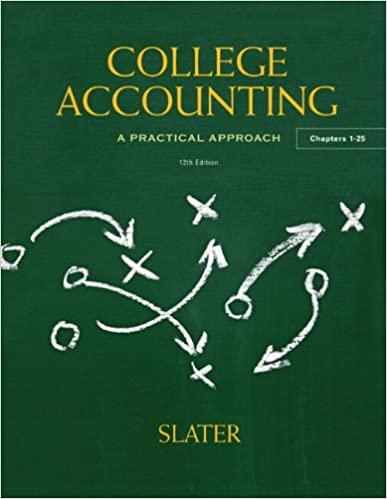Question
QUESTION 1 If the US has autonomous aggregate spending of $200 billion, consumes 70% of every dollar of income (MPC), plans to invest $100 billion.
QUESTION 1
- If the US has autonomous aggregate spending of $200 billion, consumes 70% of every dollar of income (MPC), plans to invest $100 billion. Assume there are no taxes, so Income (Y) = Disposable income (Yd)
- Set up the Aggregate Expenditure function include the consumption function.
Using Y = 0 to 2,500 billion in 250 billion increments
- At what point does the US economy break even or reaches a steady state where Iu = 0.
- Graphically demonstrate your answer.
Y=Yd | AAE | MPC | Ip | AE | Iu |
0 |
|
|
|
|
|
250 |
|
|
|
|
|
500 |
|
|
|
|
|
750 |
|
|
|
|
|
1000 |
|
|
|
|
|
1250 |
|
|
|
|
|
1500 |
|
|
|
|
|
1750 |
|
|
|
|
|
2000 |
|
|
|
|
|
2250 |
|
|
|
|
|
2500 |
|
|
|
|
|
QUESTION 2
- If the US decides to save more and consume less, such that it now consumes only 60% of its disposable income:
2. Set up the Aggregate Expenditure function include the consumption function.
Using Y = 0 to 2,500 billion in 250 billion increments
3. At what point does the US economy break even or reaches a steady state where Iu = 0.
4. Graphically demonstrate your answer.
5. Explain fully how this relates to the paradox of thrift. (Include in your answer what the paradox of thrift is and a comparison of 1b and 2b) Is the nation better off from consuming less? (Does Y go up or down?)
Y=Yd | AAE | MPC | Ip | AE | Iu |
0 |
|
|
|
|
|
250 |
|
|
|
|
|
500 |
|
|
|
|
|
750 |
|
|
|
|
|
1000 |
|
|
|
|
|
1250 |
|
|
|
|
|
1500 |
|
|
|
|
|
1750 |
|
|
|
|
|
2000 |
|
|
|
|
|
2250 |
|
|
|
|
|
2500 |
|
|
|
|
|
Step by Step Solution
There are 3 Steps involved in it
Step: 1

Get Instant Access to Expert-Tailored Solutions
See step-by-step solutions with expert insights and AI powered tools for academic success
Step: 2

Step: 3

Ace Your Homework with AI
Get the answers you need in no time with our AI-driven, step-by-step assistance
Get Started


